3.将函数写入共享库中
1、创建resources/config/config.json文件
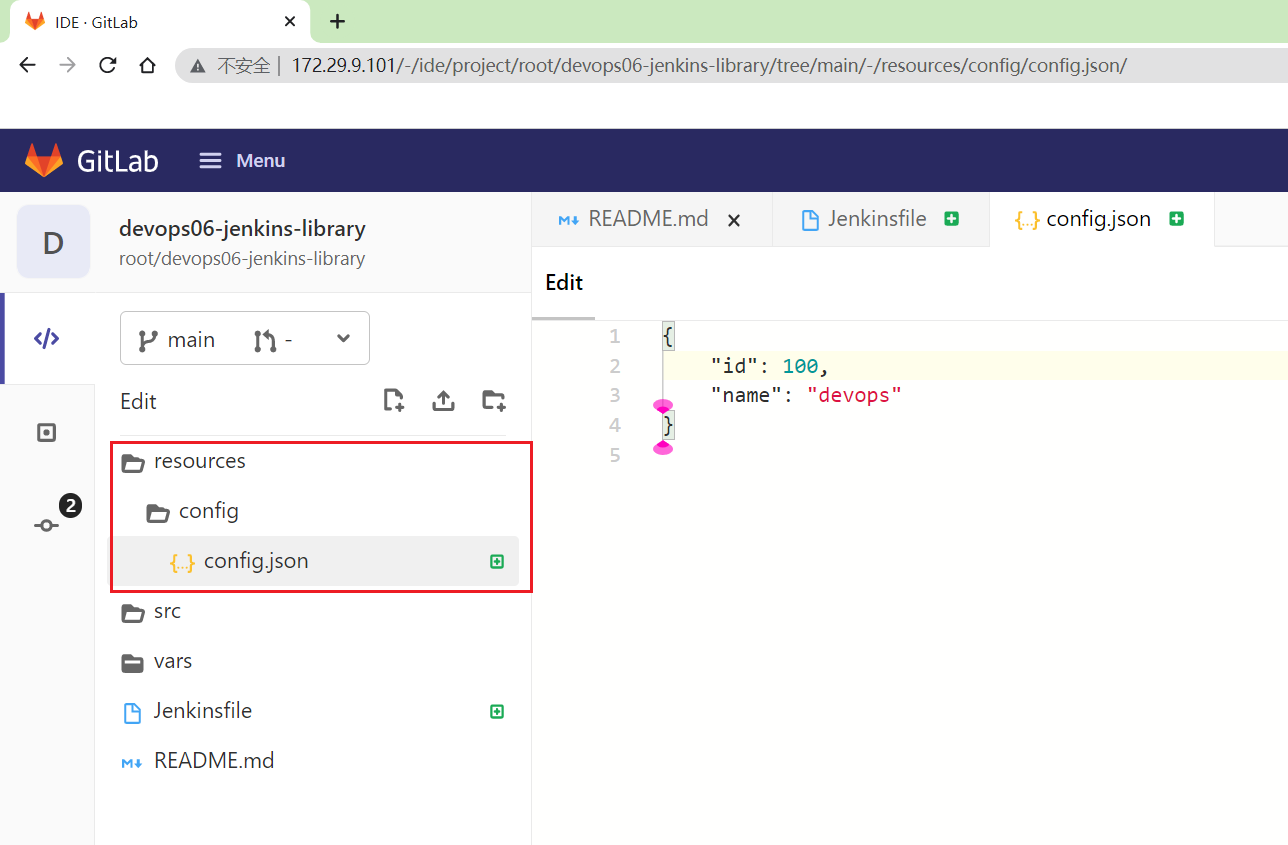
json
{"id":100,"name":"devops"}2、创建src/og/devops/Common.groovy文件
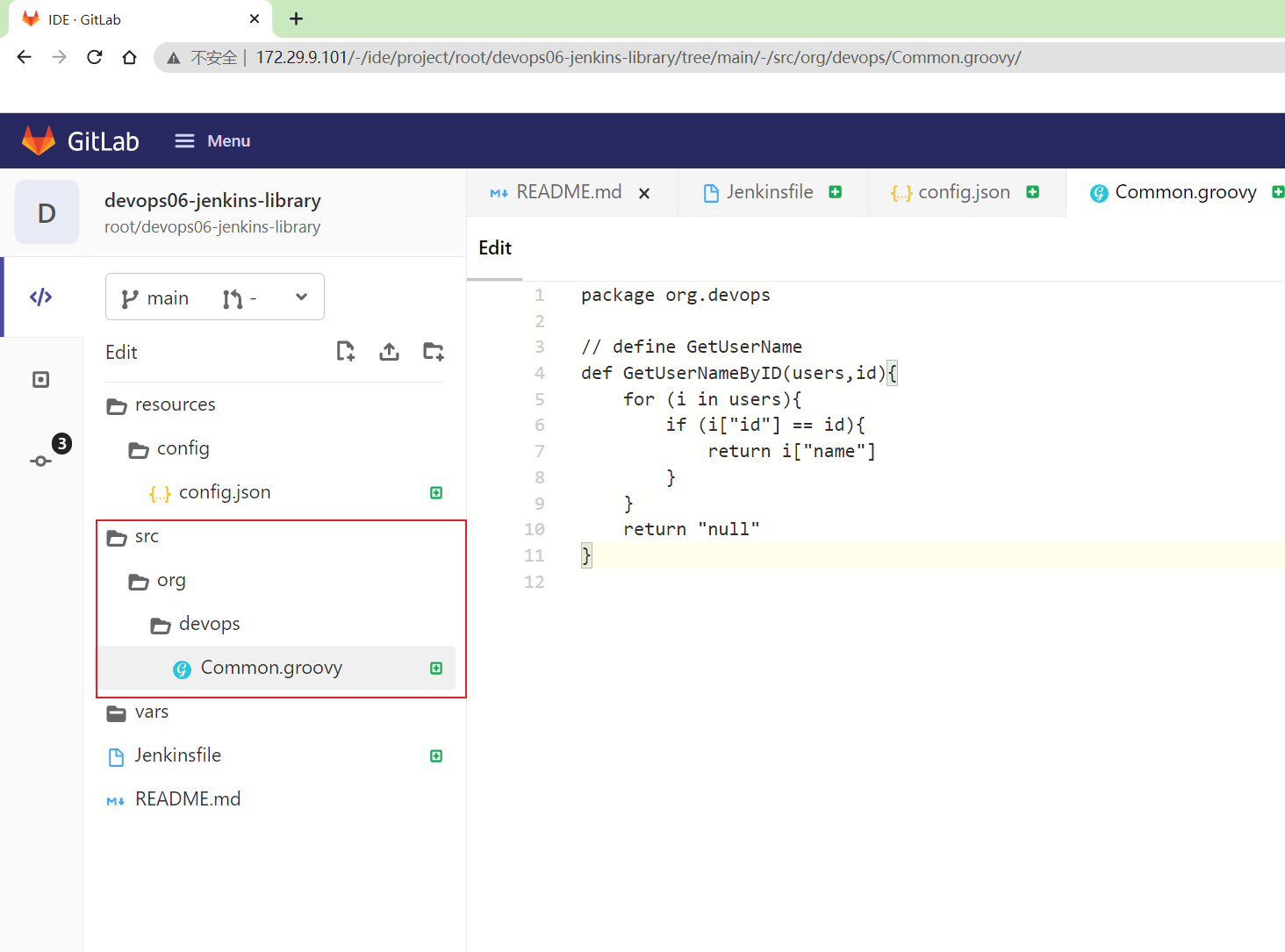
groovy
packageorg.devopsdefGetUserNameByID(users,id){for(i inusers){if(i["id"] ==id){returni["name"]}}return"null"}3、创建vars/GetUserName.groovy文件
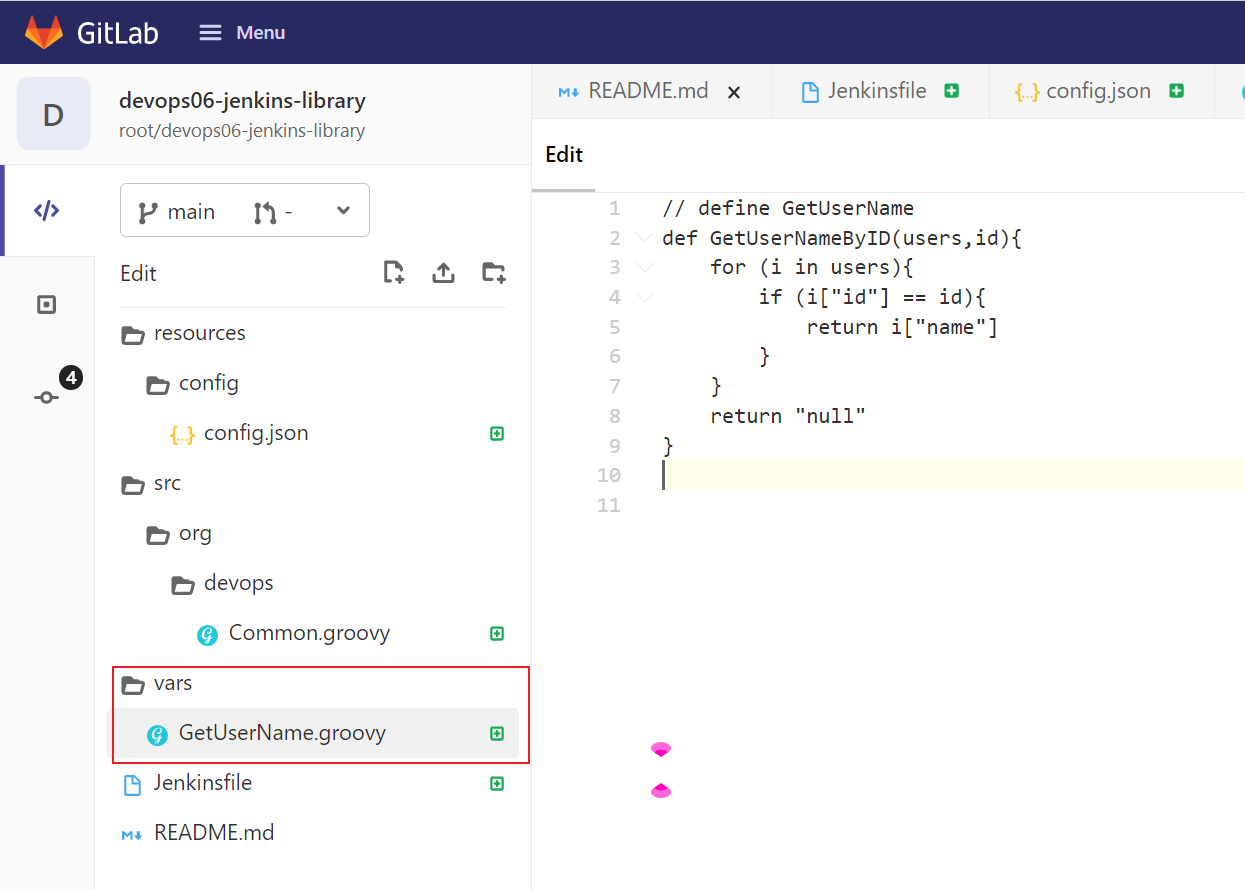
groovy
defGetUserNameByID(users,id){for(i inusers){if(i["id"] ==id){returni["name"]}}return"null"}提交:(这里以main分支提交)
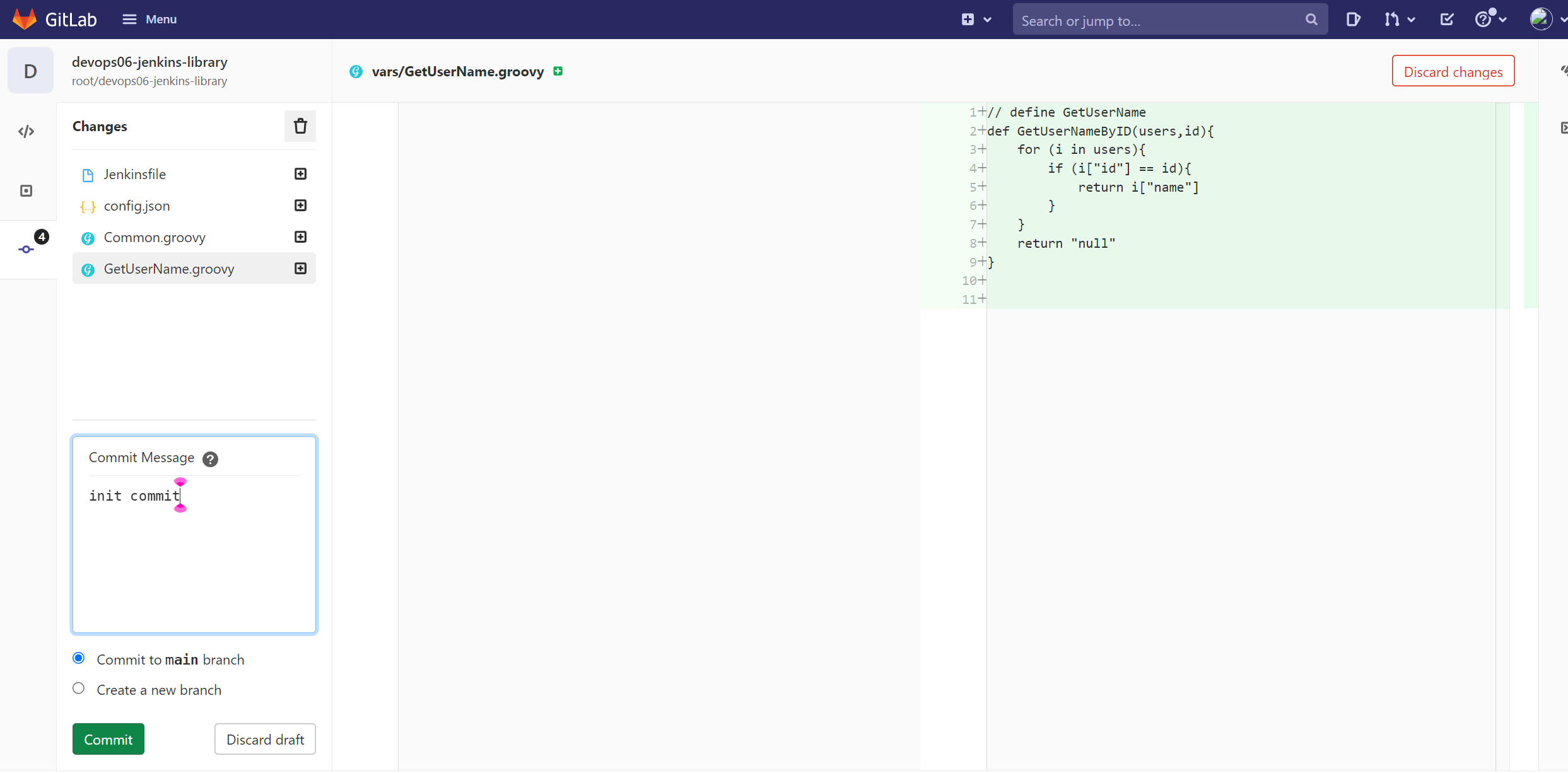
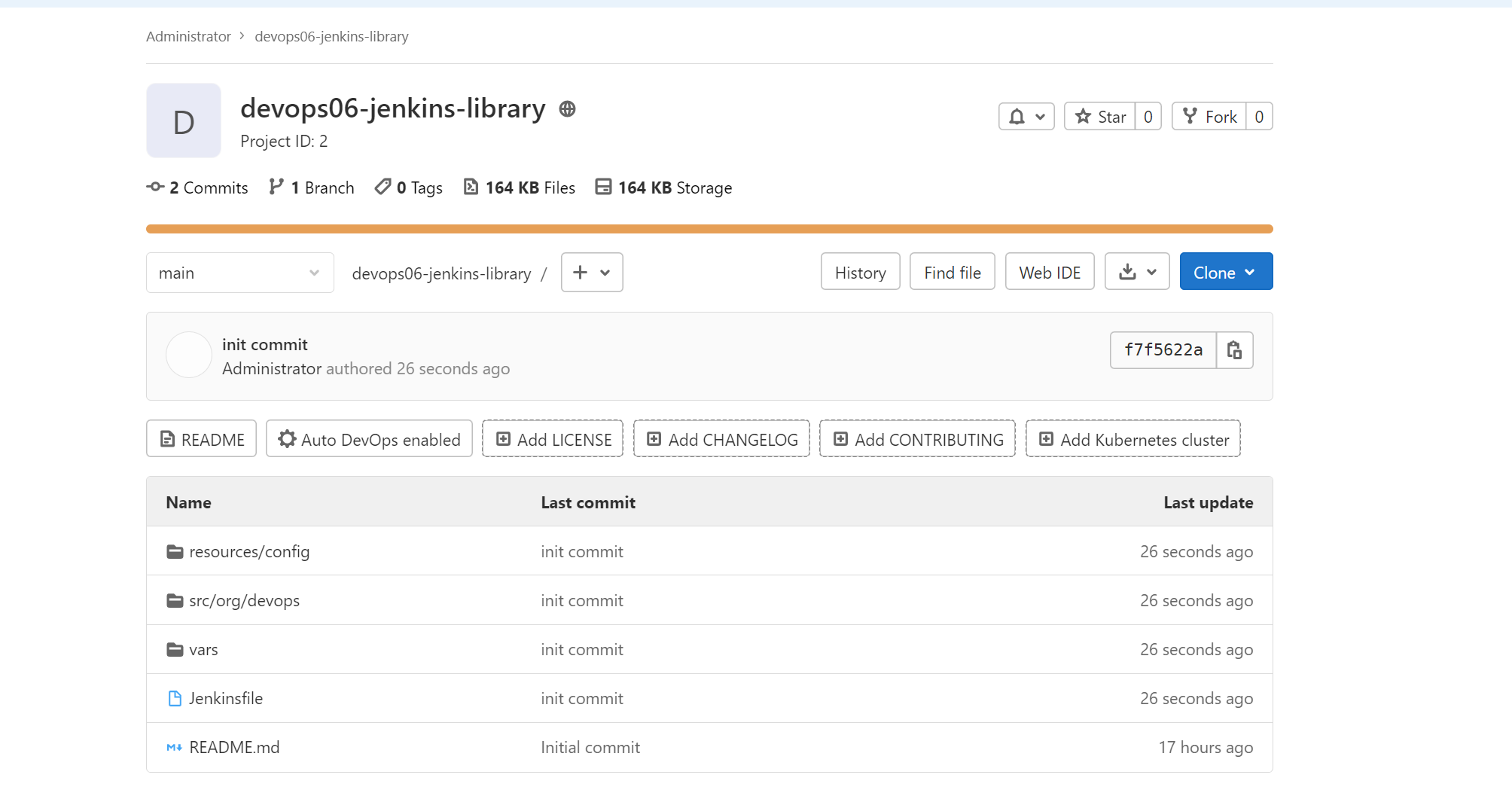
4.共享库的定义
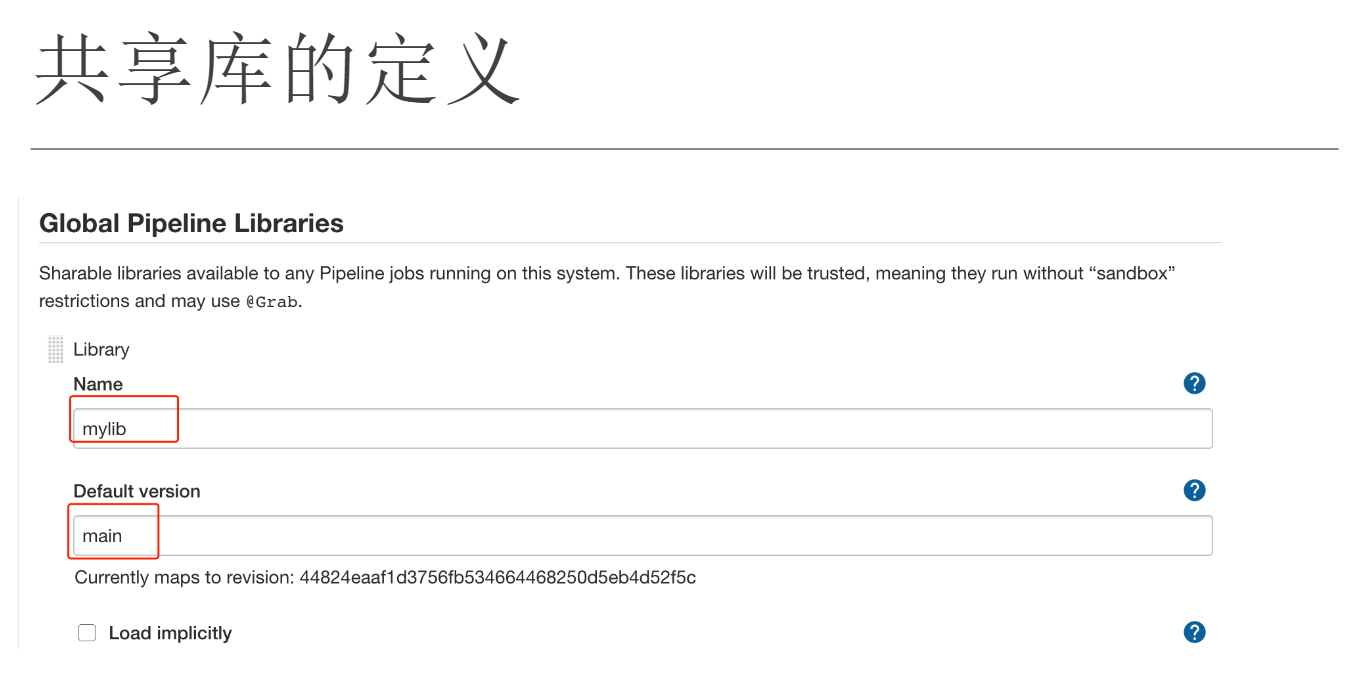
Jenkins系统配置 ->Global Pipeline Libraries
首先,我们为共享库设置一个名称 mylib(自定义,无需与gitlab仓库一致),注意这个名称后续在Jenkinsfile中引用。 再设置一个默认的版本,这里的版本是分支的名称。我默认配置的是main版本。(github默认版本必须是main)
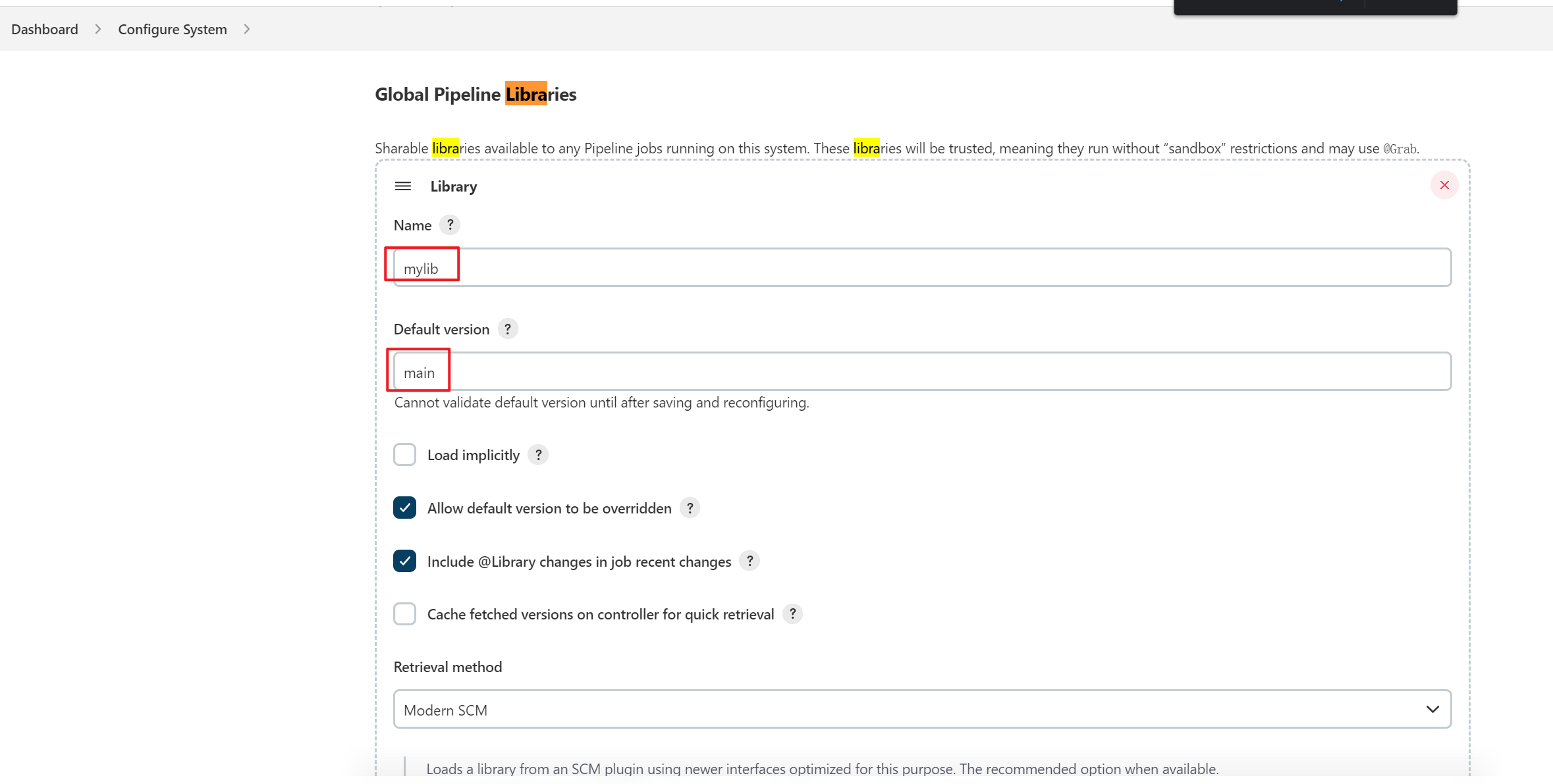
⚠️ 注意:
- 这里的Name不一定和刚才创建的仓库名称一样,只是一个别名而已;
- 这里的Default version填的是仓库的分支名称;
- 共享库是可以配置多个的!
- 接下来我们配置**共享库的仓库地址,**我的仓库在gitlab中,所以这里我填写的是Git的方式。如果仓库是私有的方式,需要在jenkins的凭据中添加一个账号用于下载共享库。
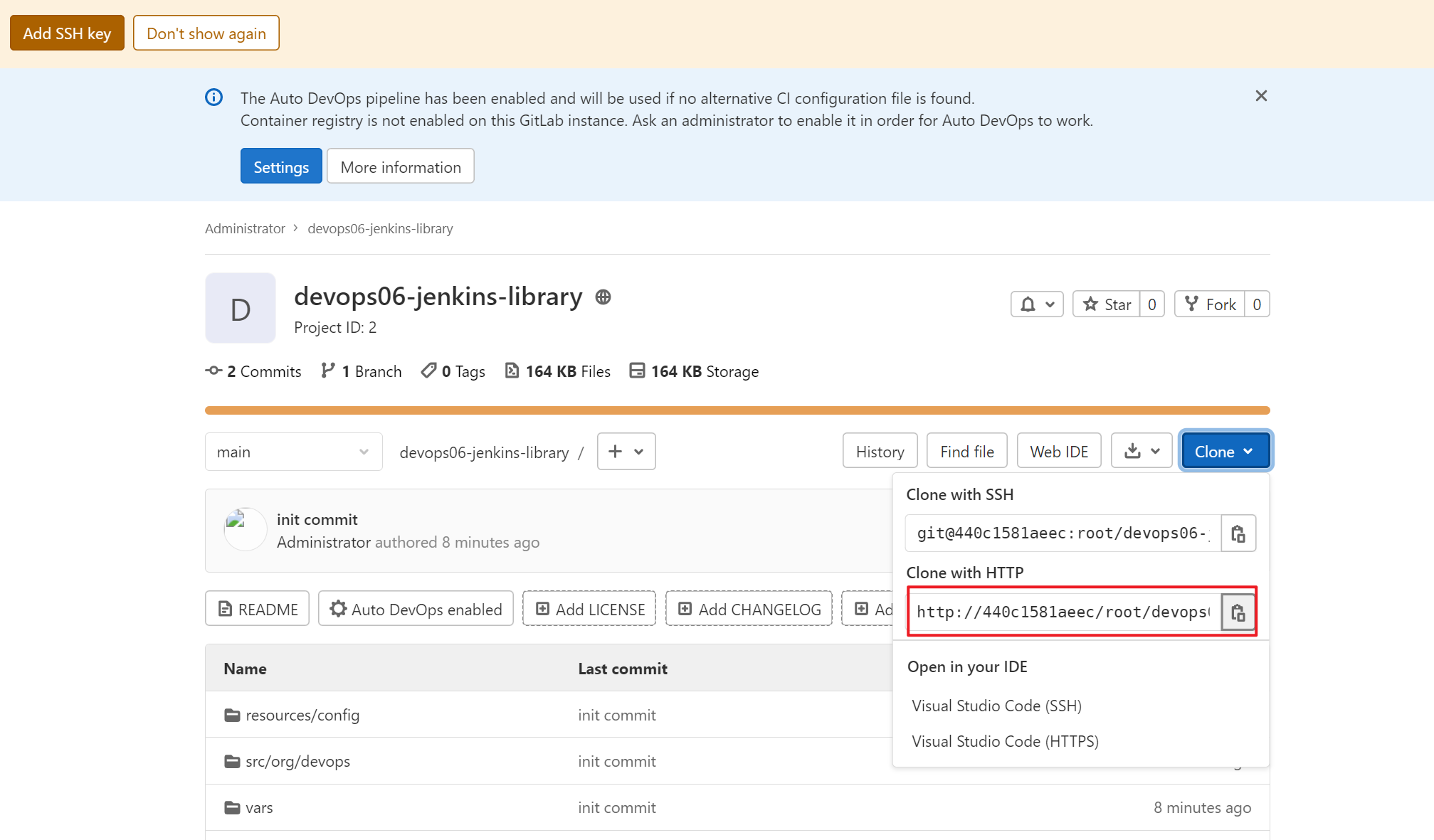
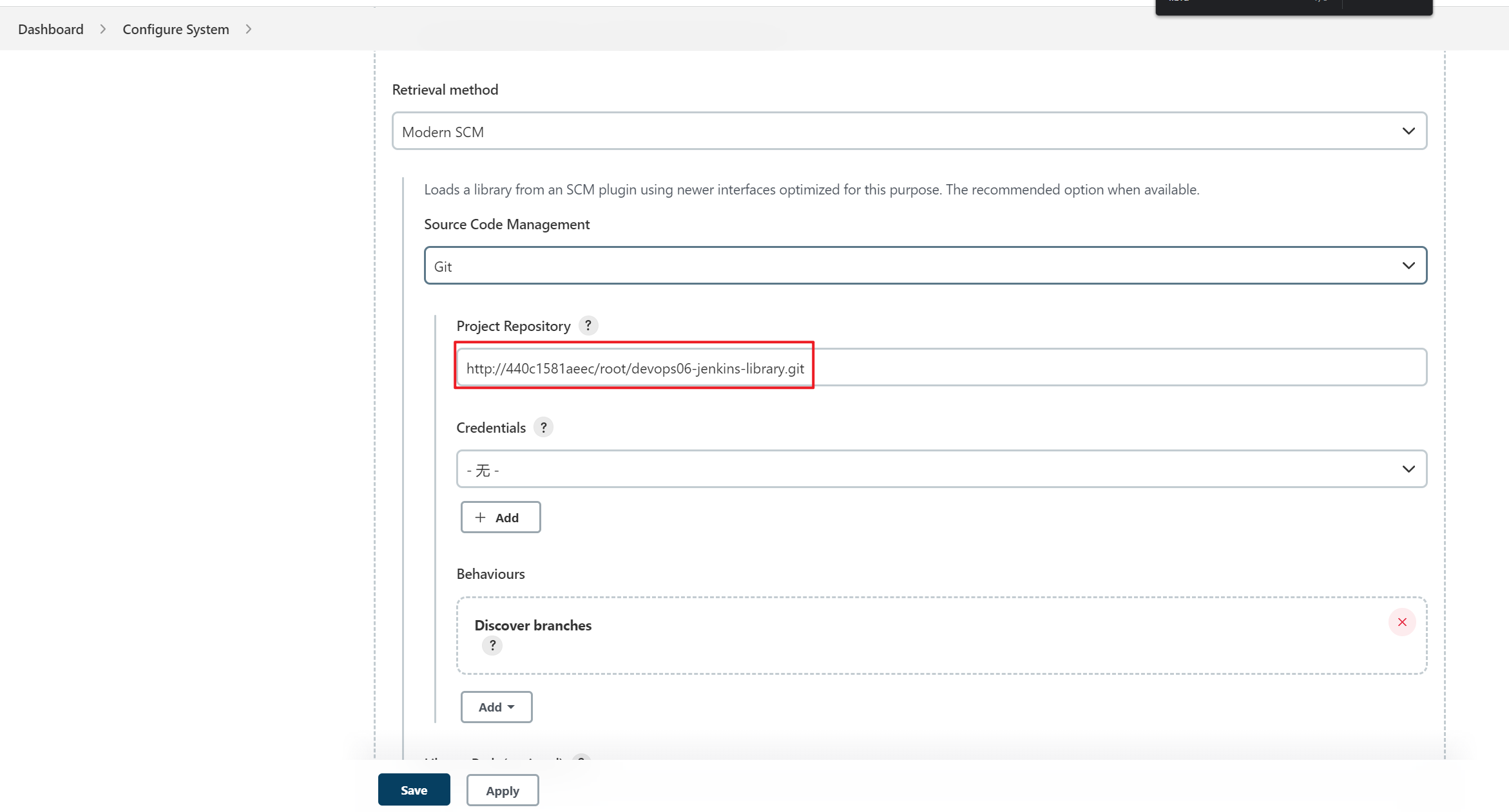
点击Save。
3、共享库使用
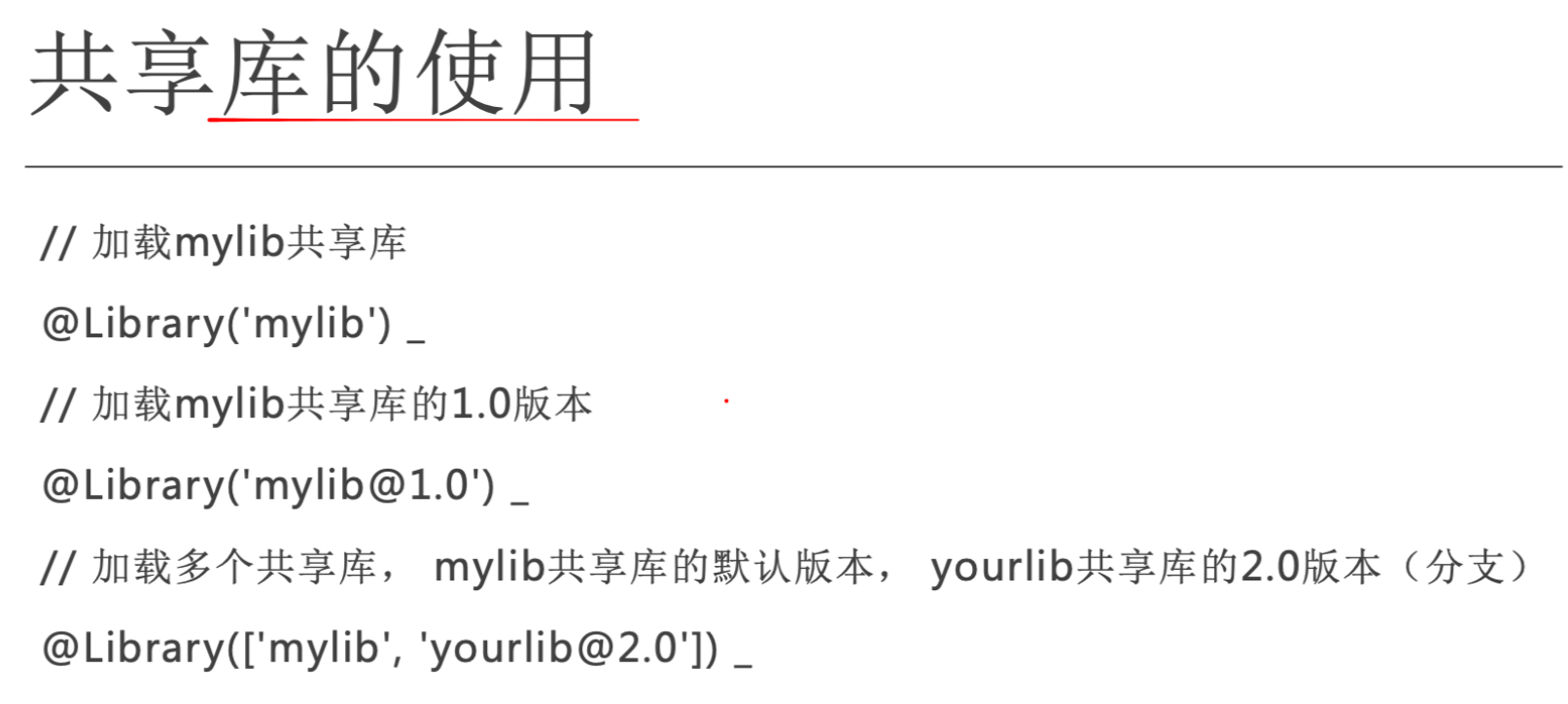
测试1:基础使用共享库
- 编写Jenkinsfile代码,并提交:
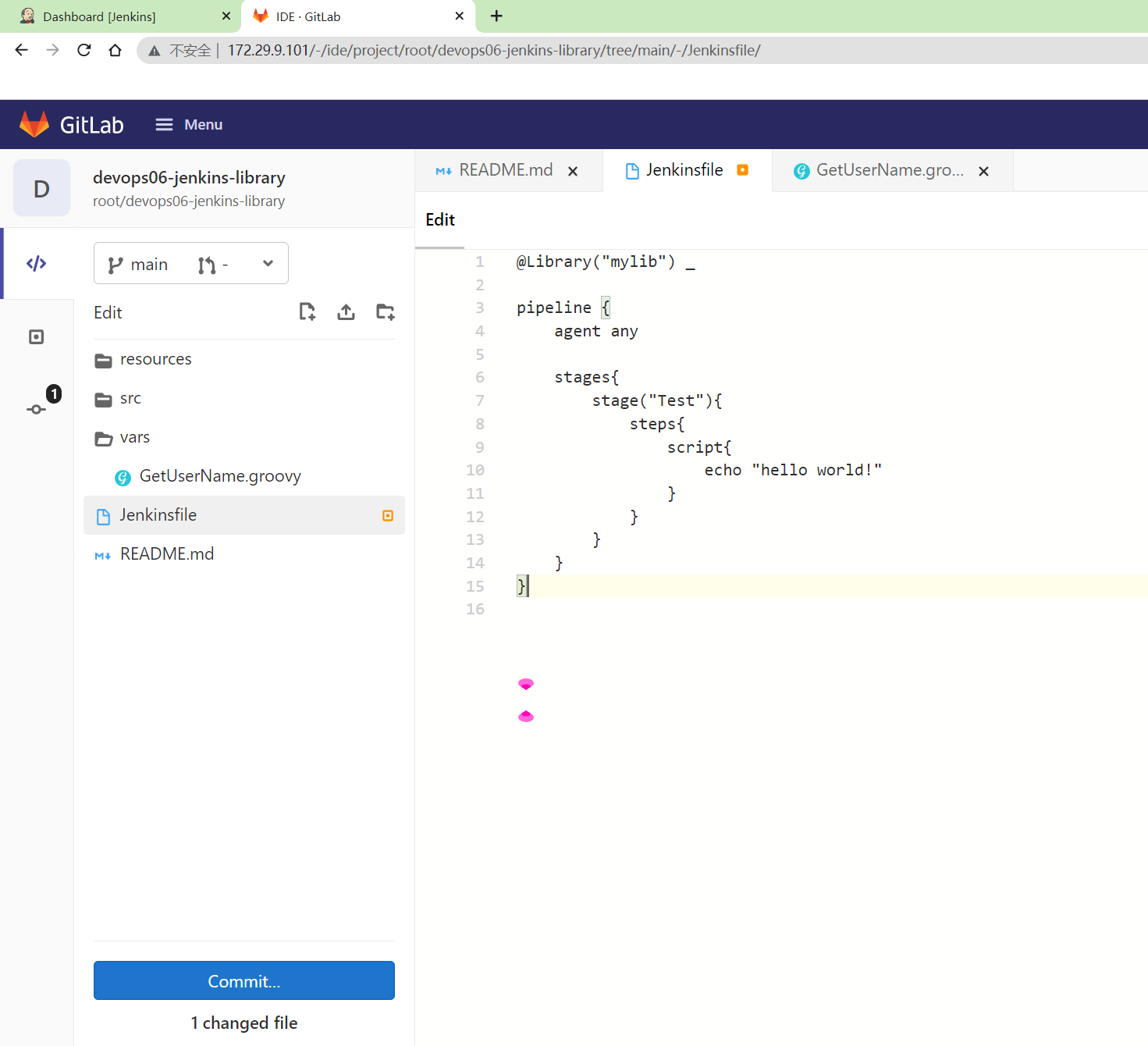
groovy
@Library("mylib") _ pipeline {agent anystages{stage("Test"){steps{script{echo "hello world!"}}}}}提交:
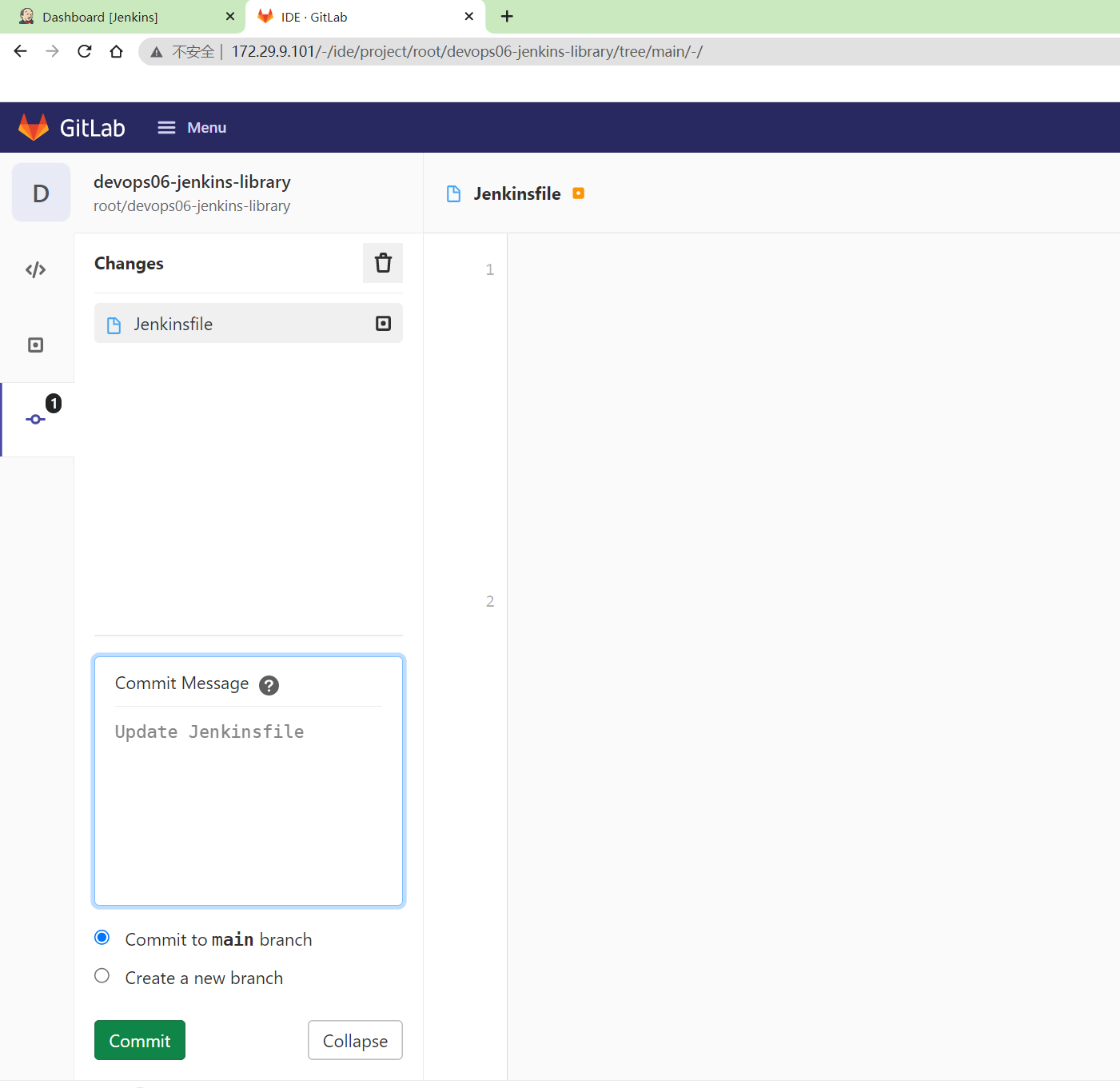
⚠️
==注意:这里出现一个gitlab报错的问题……在定义共享库配置后:说是无法解析刚才的仓库地址==
hudson.plugins.git.GitException:Command "git ls-remote -h -- http:stdout:stderr:fatal:unable to access 'http:defcommon =neworg.devops.Common()users =[["id":1,"name":"jenkins1"],["id":2,"name":"jenkins2"],["id":3,"name":"jenkins3"],]pipeline {agent anystages{stage("Test"){steps{script{echo "hello world!"name =common.GetUserNameByID(users,1)print(name)}}}}}提交,并运行流水线。

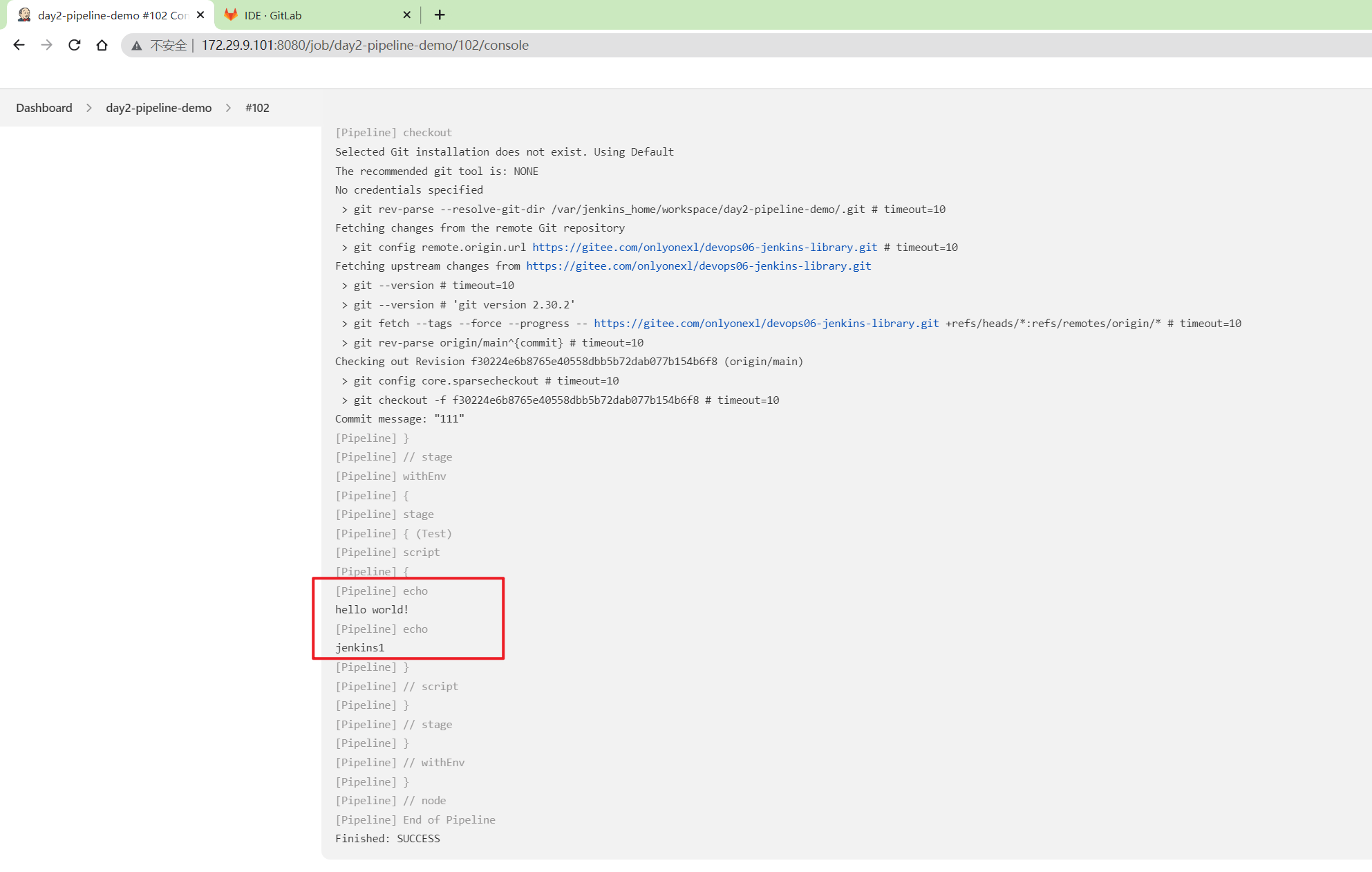
符合预期。
测试3:vars里函数调用
- 编写jenkins代码
错误版演示:
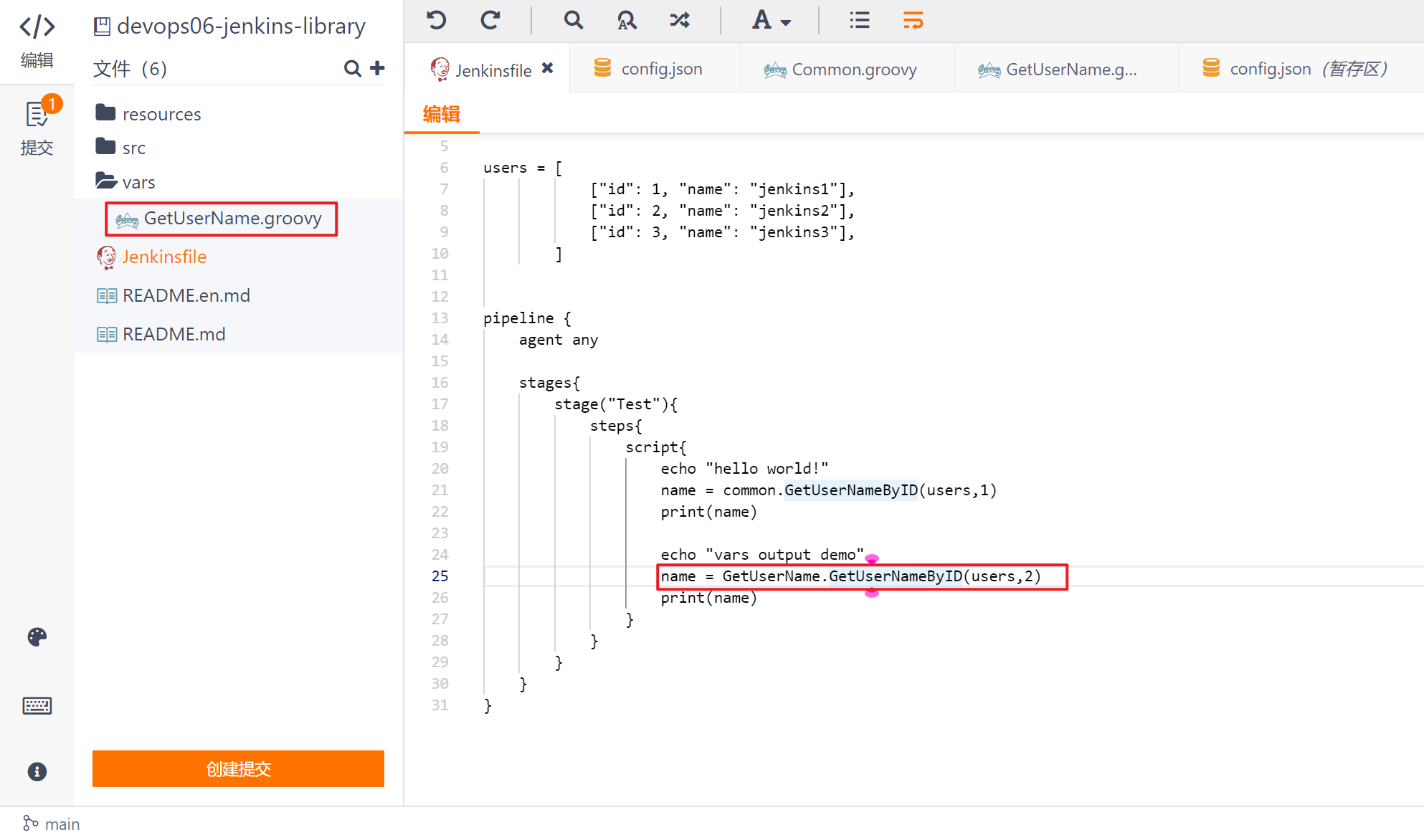
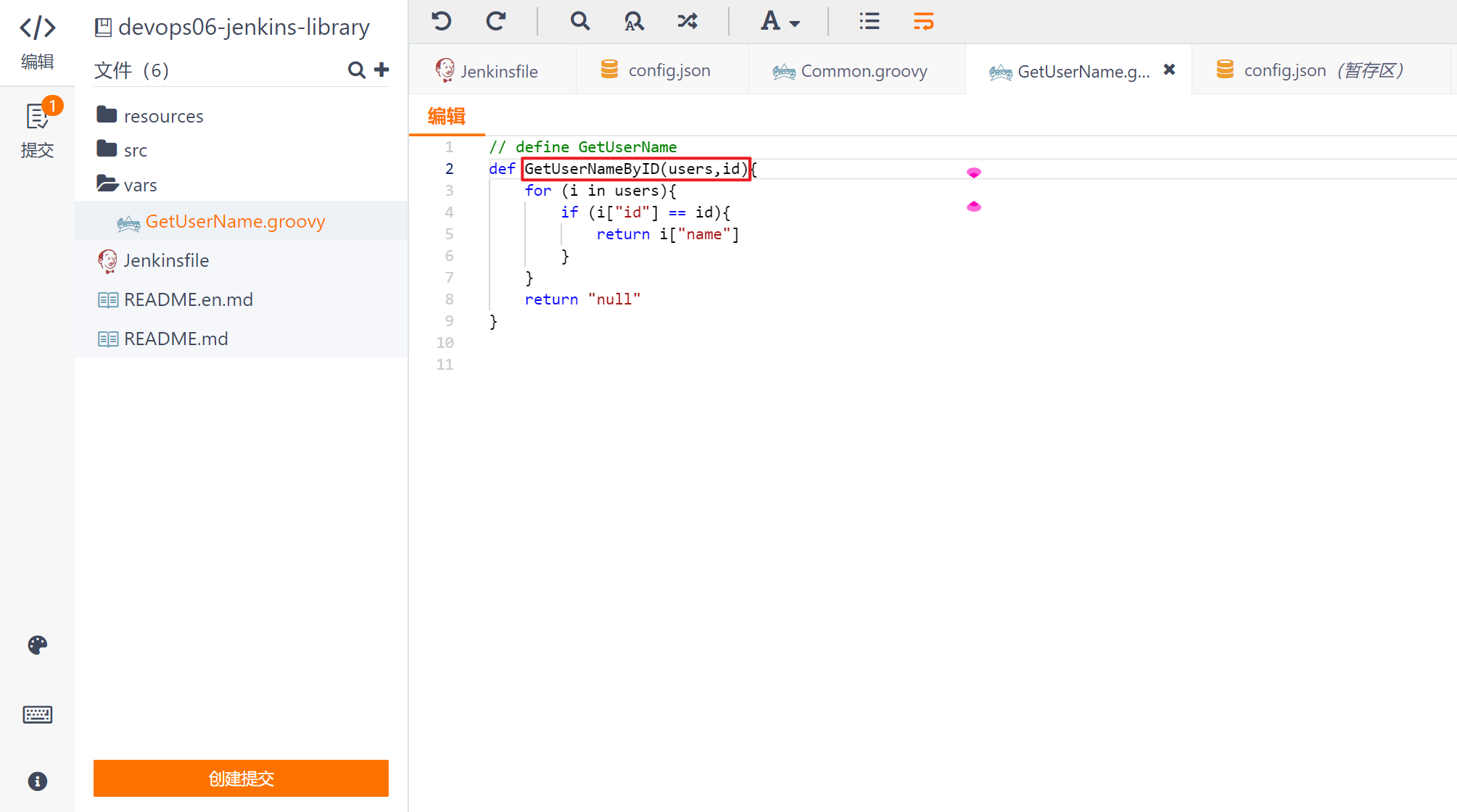
提交并运行流水线:
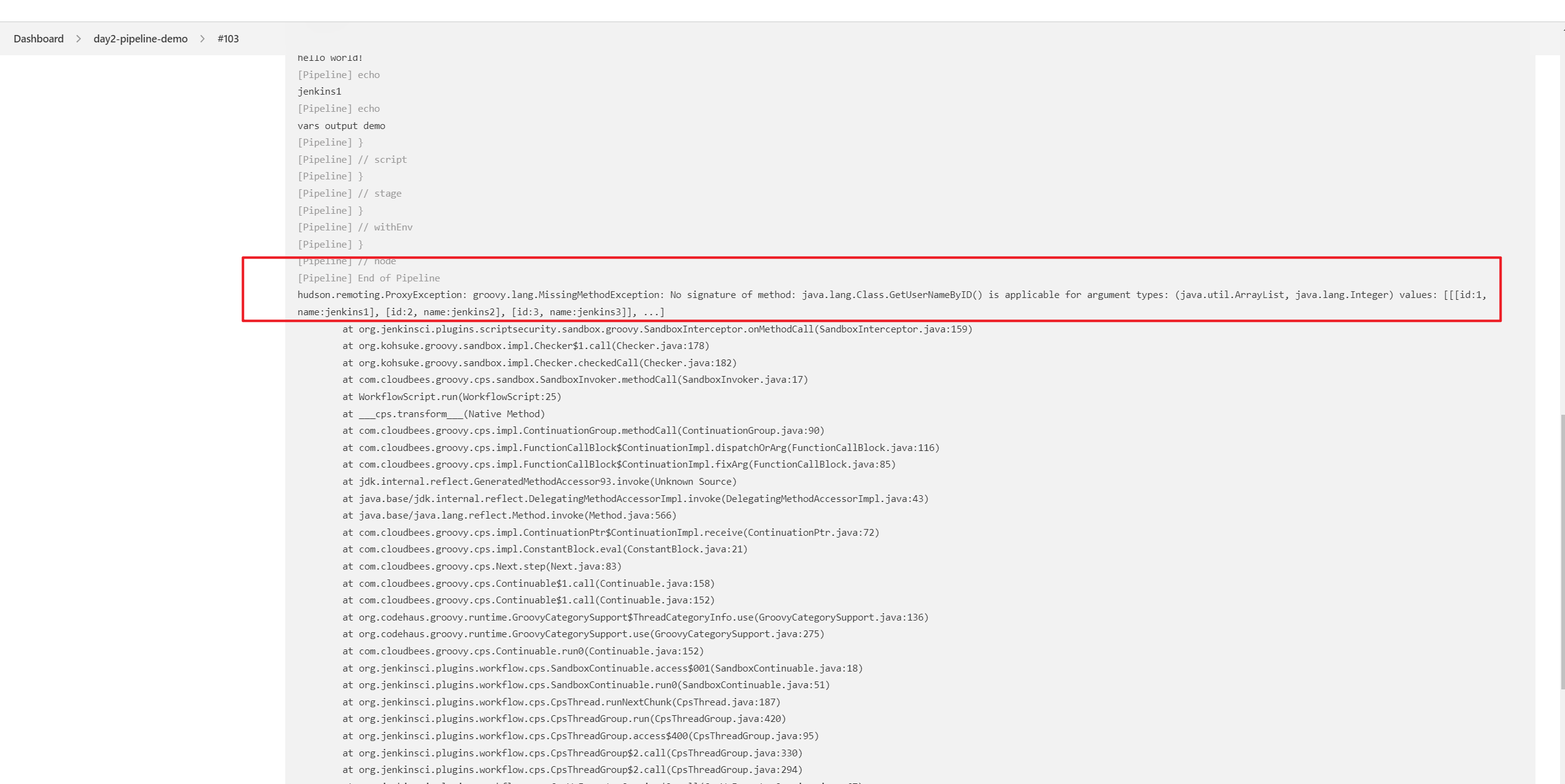
可以看到会报错的。
- 我们再来演示下正确版写法:
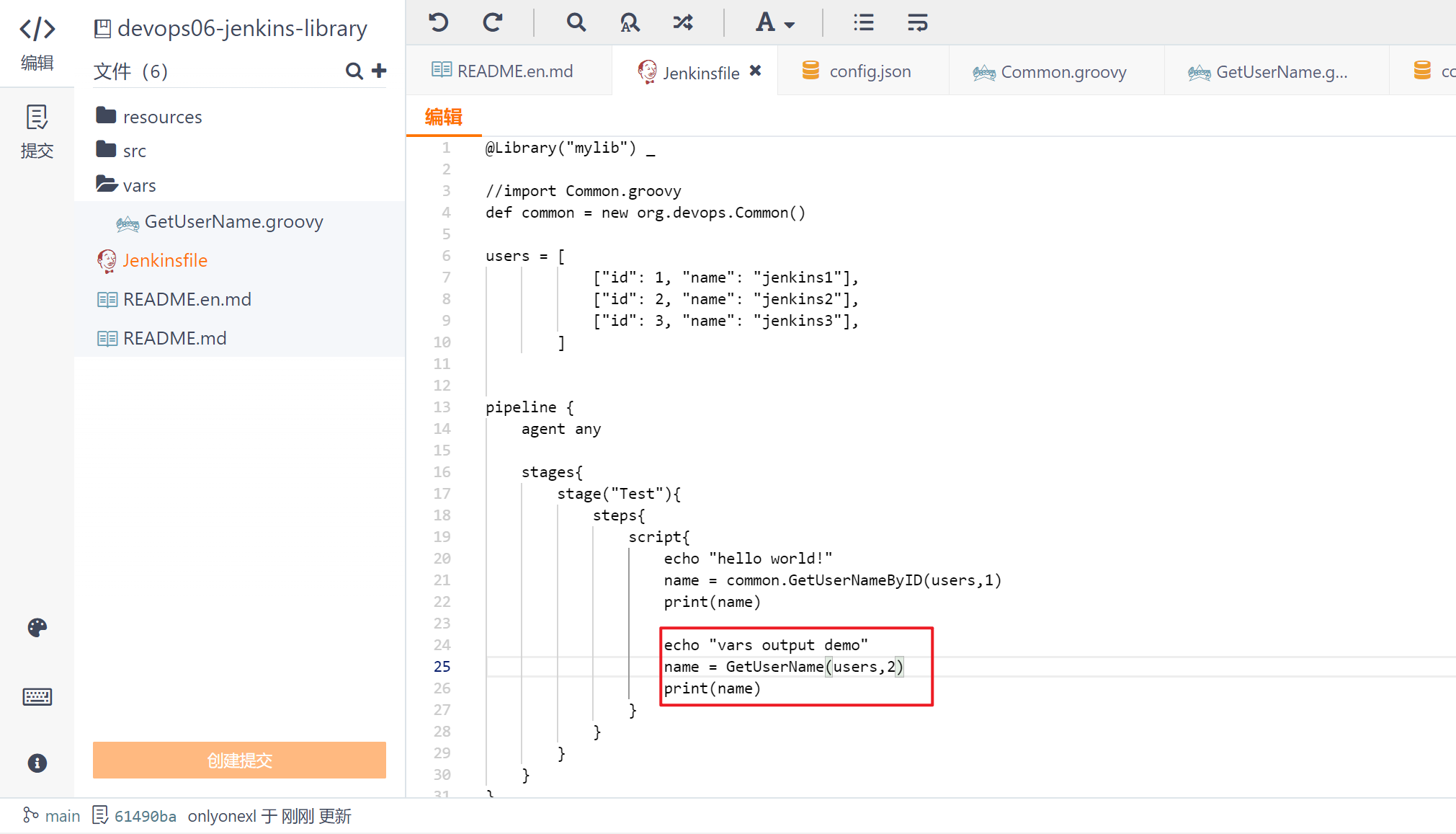
call是固定写法:
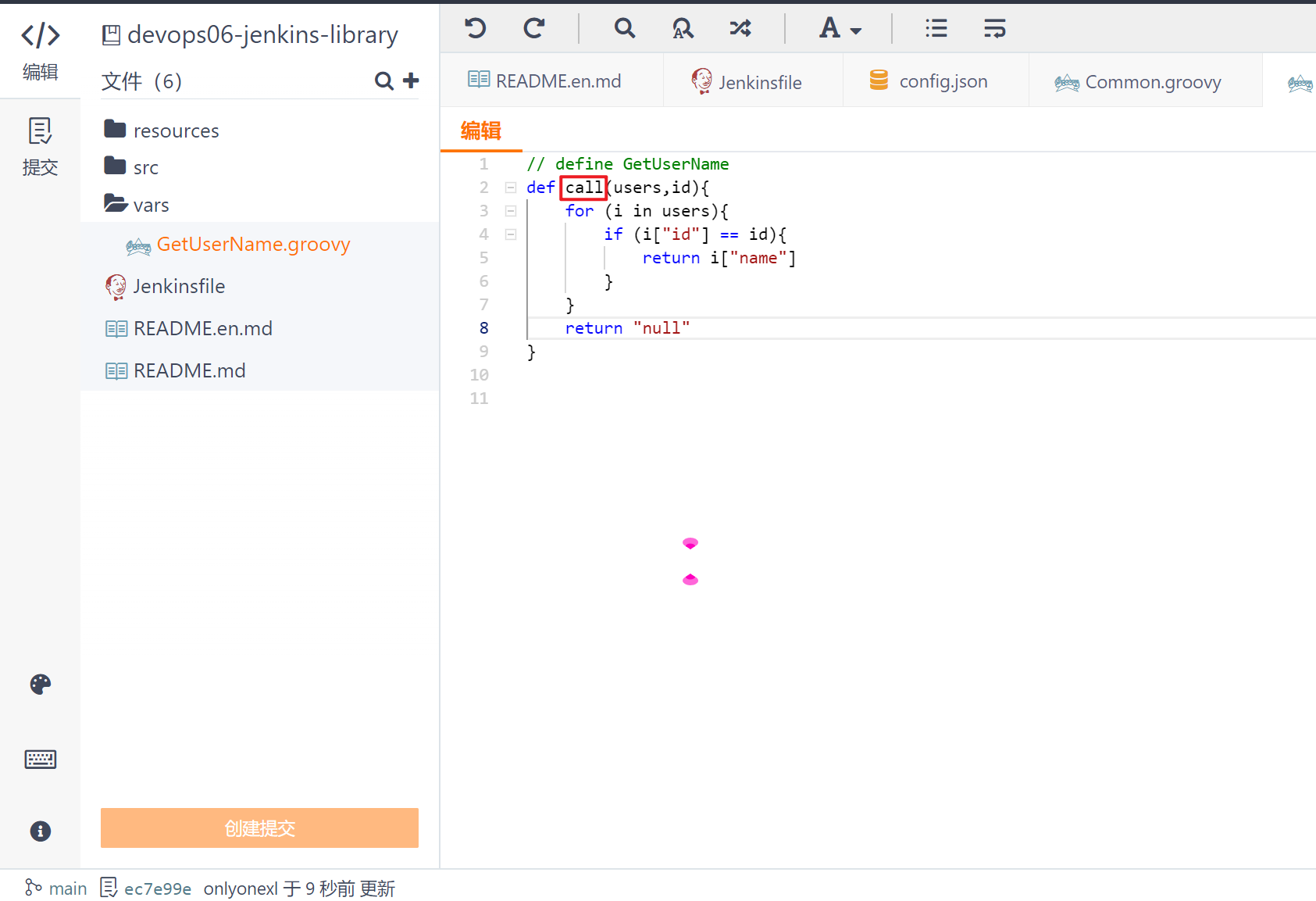
groovy
@Library("mylib") _ defcommon =neworg.devops.Common()users =[["id":1,"name":"jenkins1"],["id":2,"name":"jenkins2"],["id":3,"name":"jenkins3"],]pipeline {agent anystages{stage("Test"){steps{script{echo "hello world!"name =common.GetUserNameByID(users,1)print(name)echo "vars output demo"name =GetUserName(users,2)print(name)}}}}}- 提交并运行:
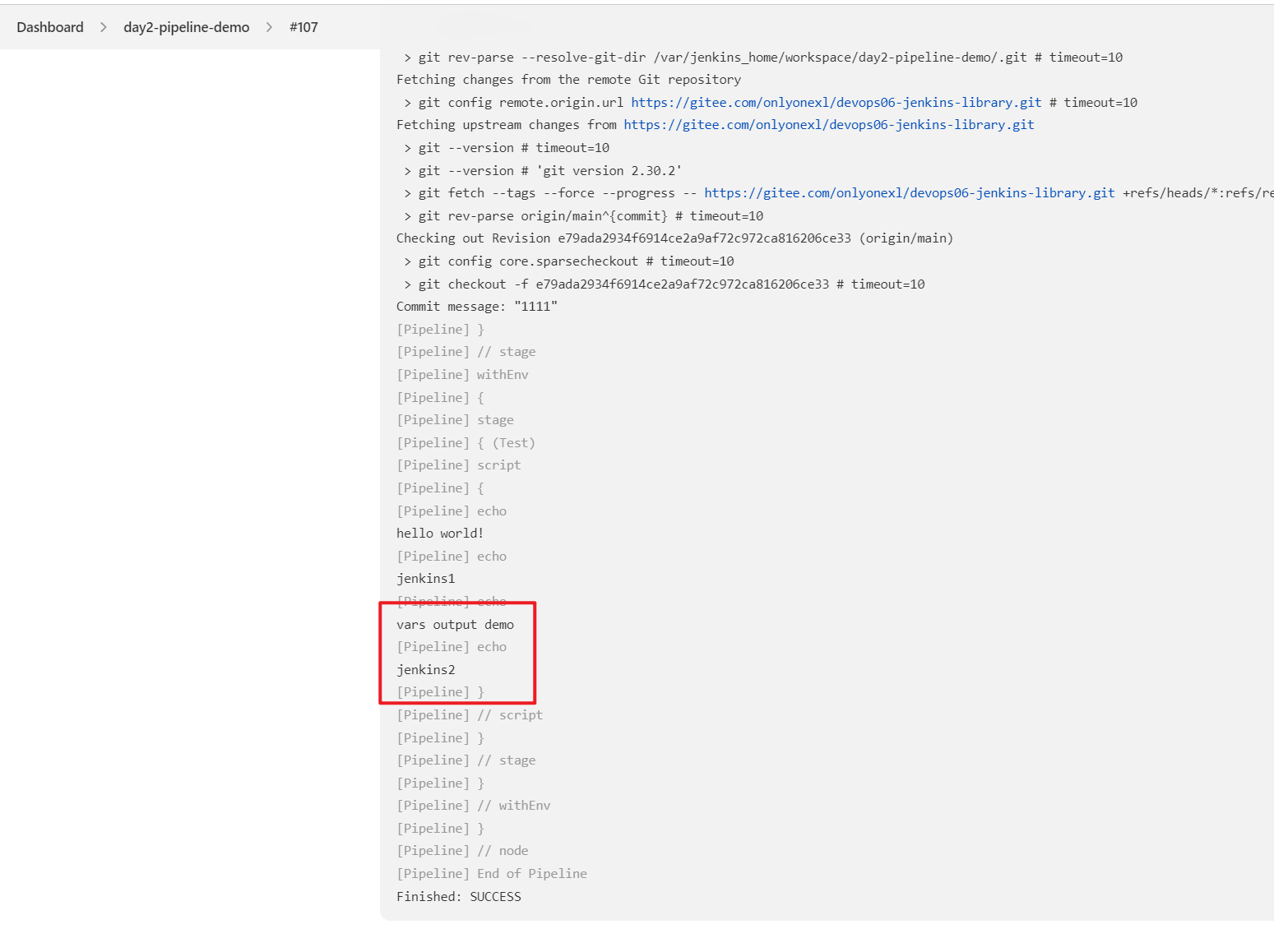
符合预期。
测试4:资源文件引用
- 代码
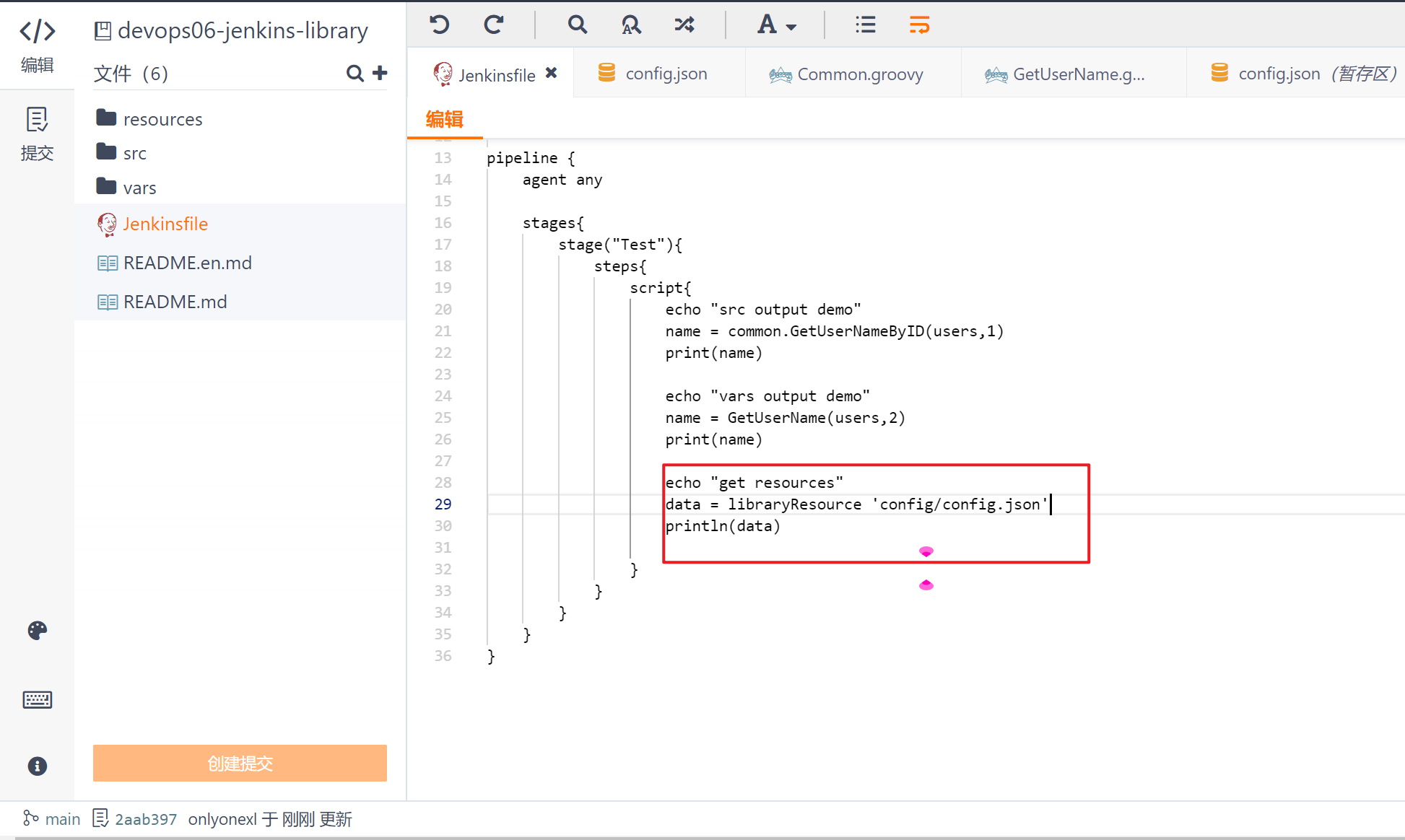
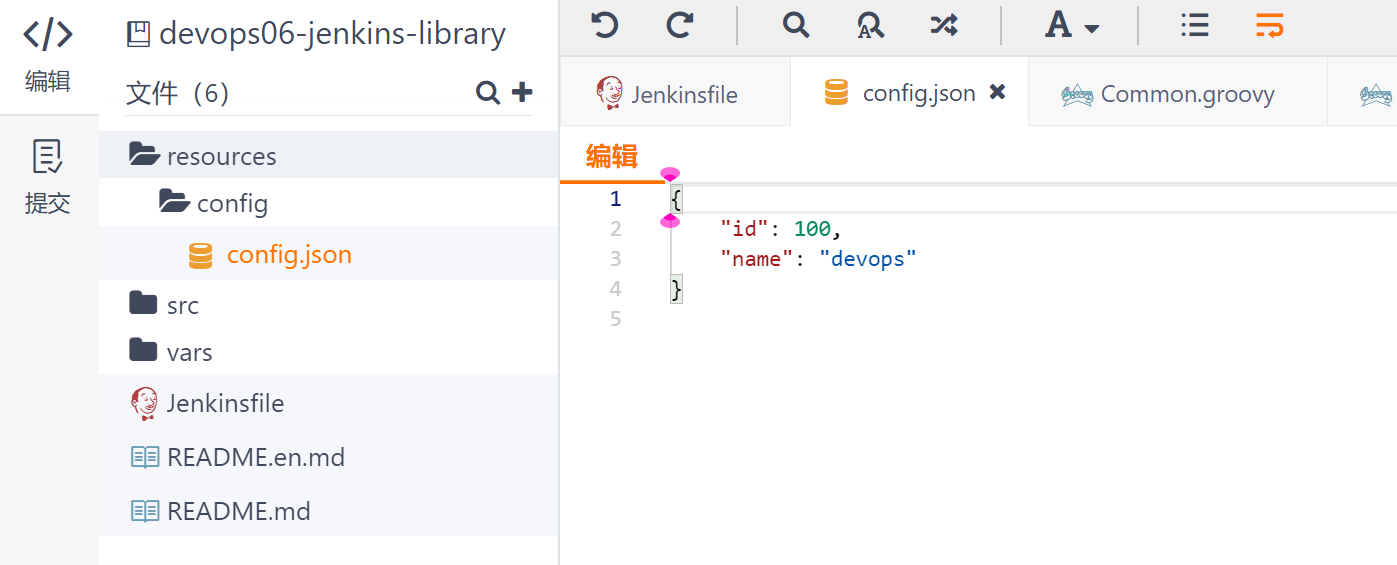
groovy
@Library("mylib") _ defcommon =neworg.devops.Common()users =[["id":1,"name":"jenkins1"],["id":2,"name":"jenkins2"],["id":3,"name":"jenkins3"],]pipeline {agent anystages{stage("Test"){steps{script{echo "src output demo"name =common.GetUserNameByID(users,1)print(name)echo "vars output demo"name =GetUserName(users,2) print(name)echo "get resources"data =libraryResource 'config/config.json'println(data)}}}}}- 提交并运行
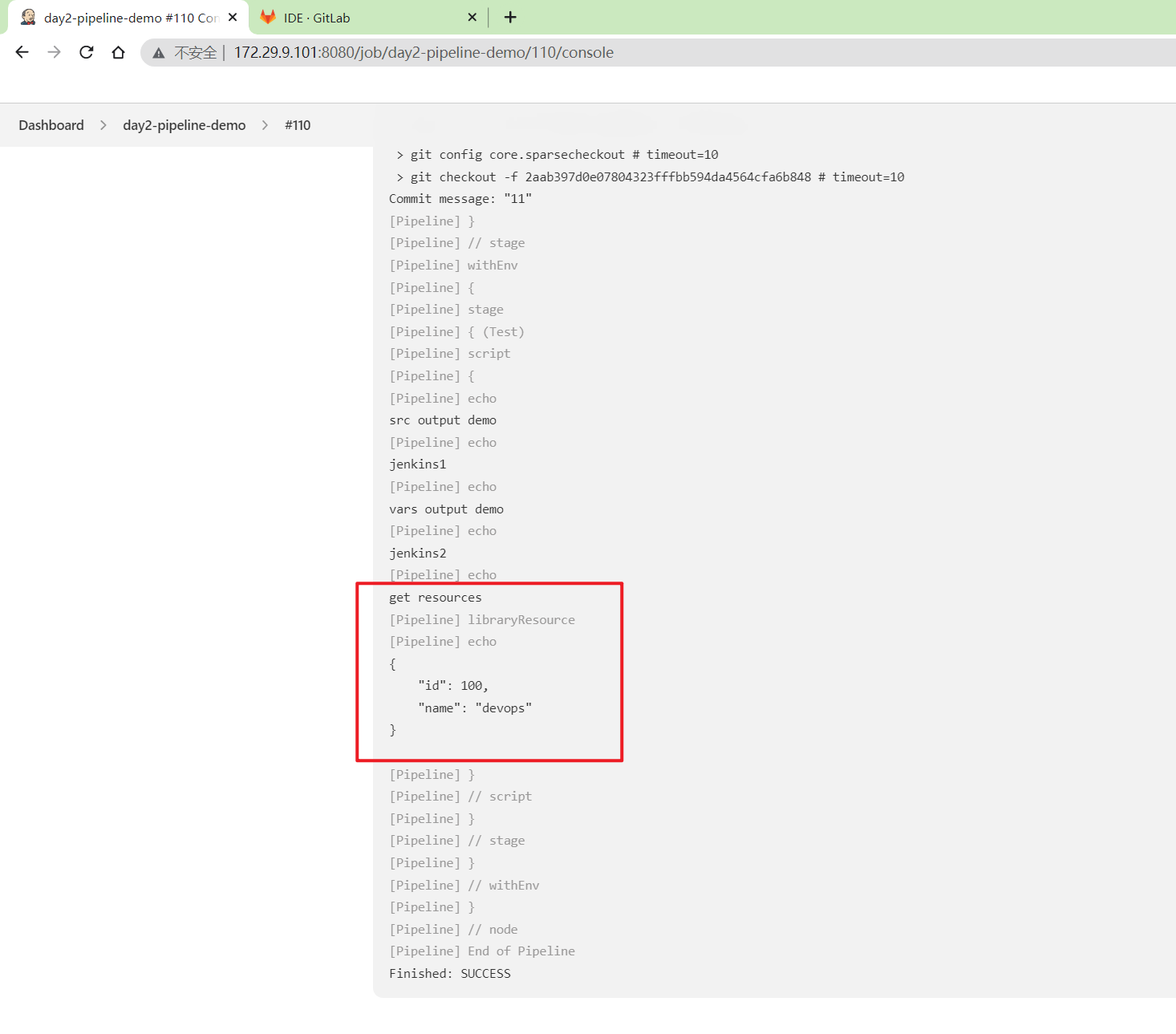
测试5:处理json数据
- 安装
pipeline util插件(安装了这个插件后,才能使用这些语法)
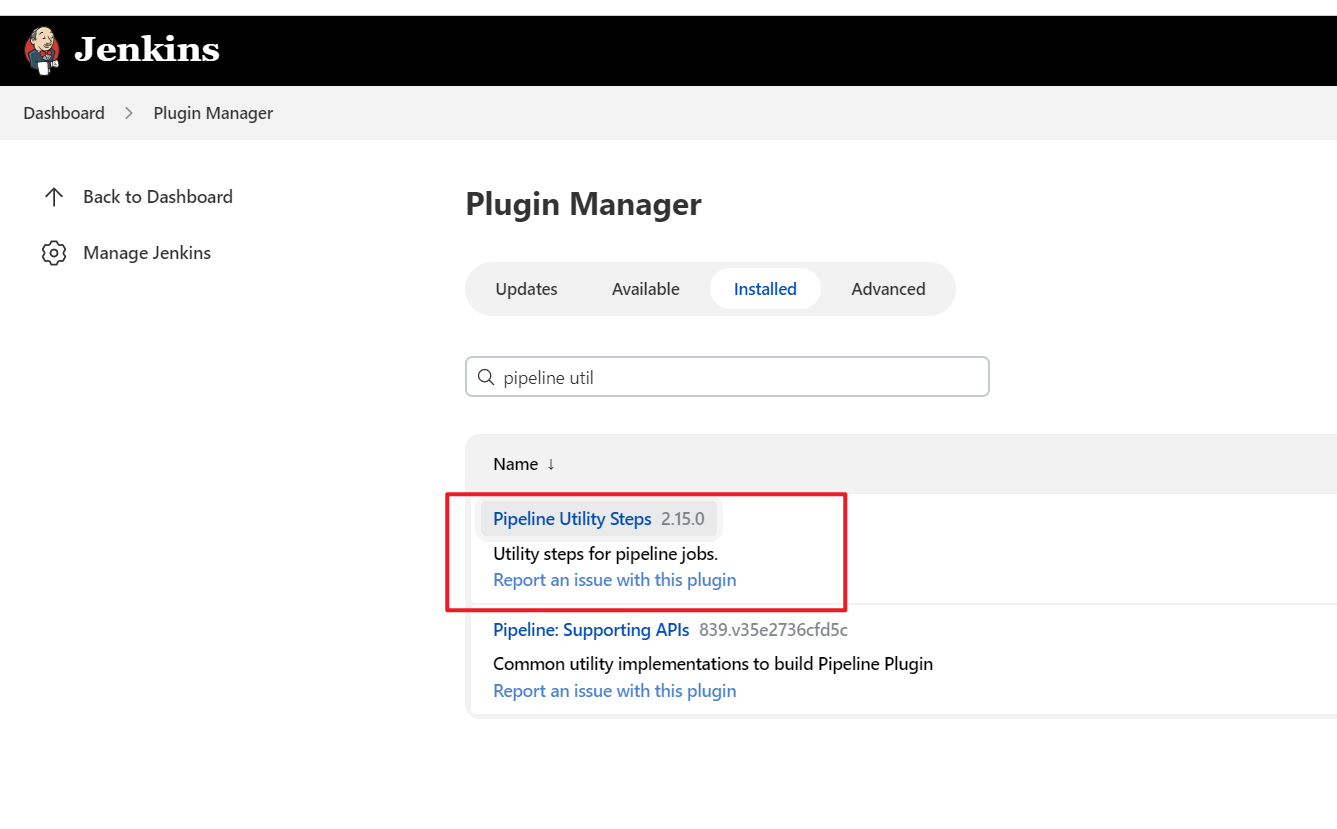
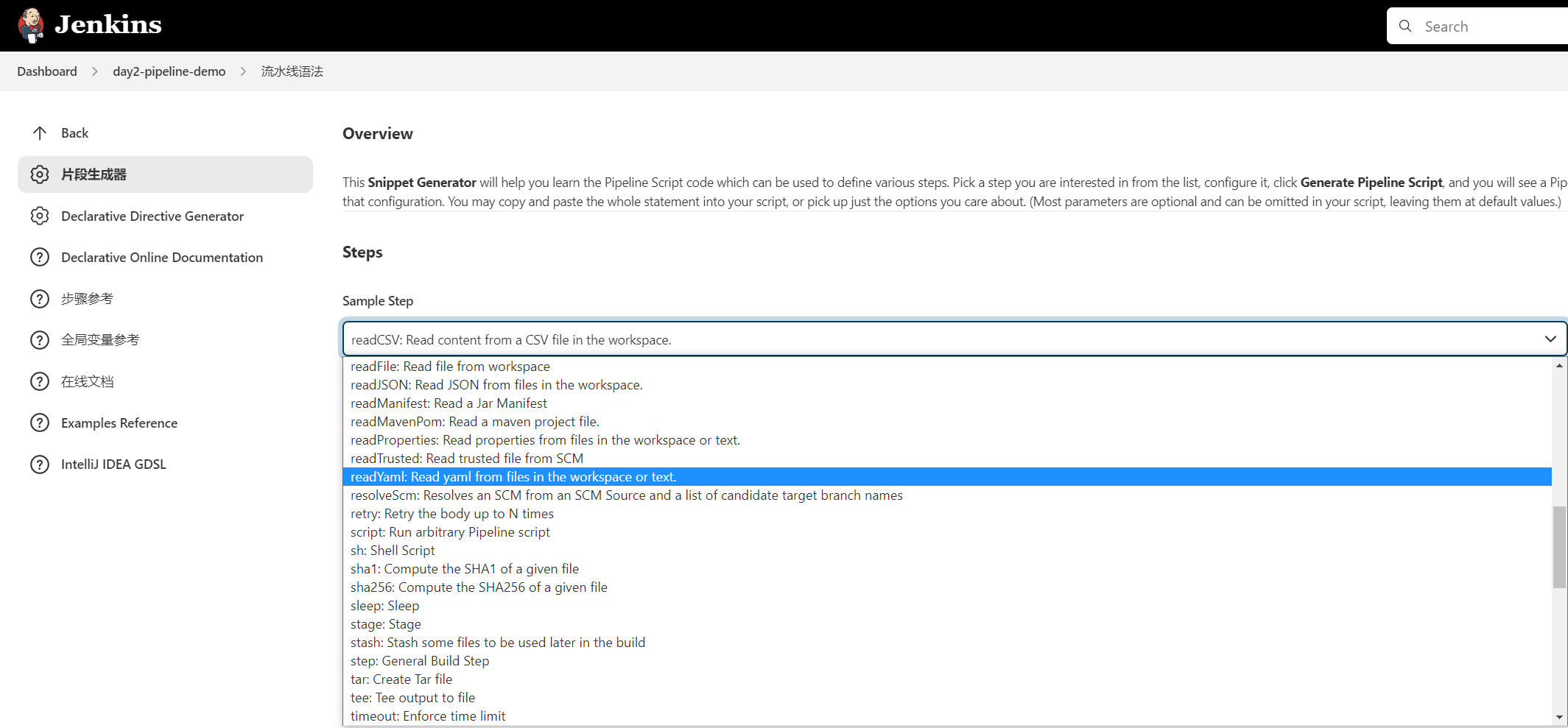
- 代码

groovy
@Library("mylib") _ defcommon =neworg.devops.Common()users =[["id":1,"name":"jenkins1"],["id":2,"name":"jenkins2"],["id":3,"name":"jenkins3"],]pipeline {agent anystages{stage("Test"){steps{script{echo "src output demo"name =common.GetUserNameByID(users,1)print(name)echo "vars output demo"name =GetUserName(users,2)print(name)echo "get resources"data =libraryResource 'config/config.json'println(data)data_json =readJSON text:dataprintln(data_json["id"])}}}}}- 运行
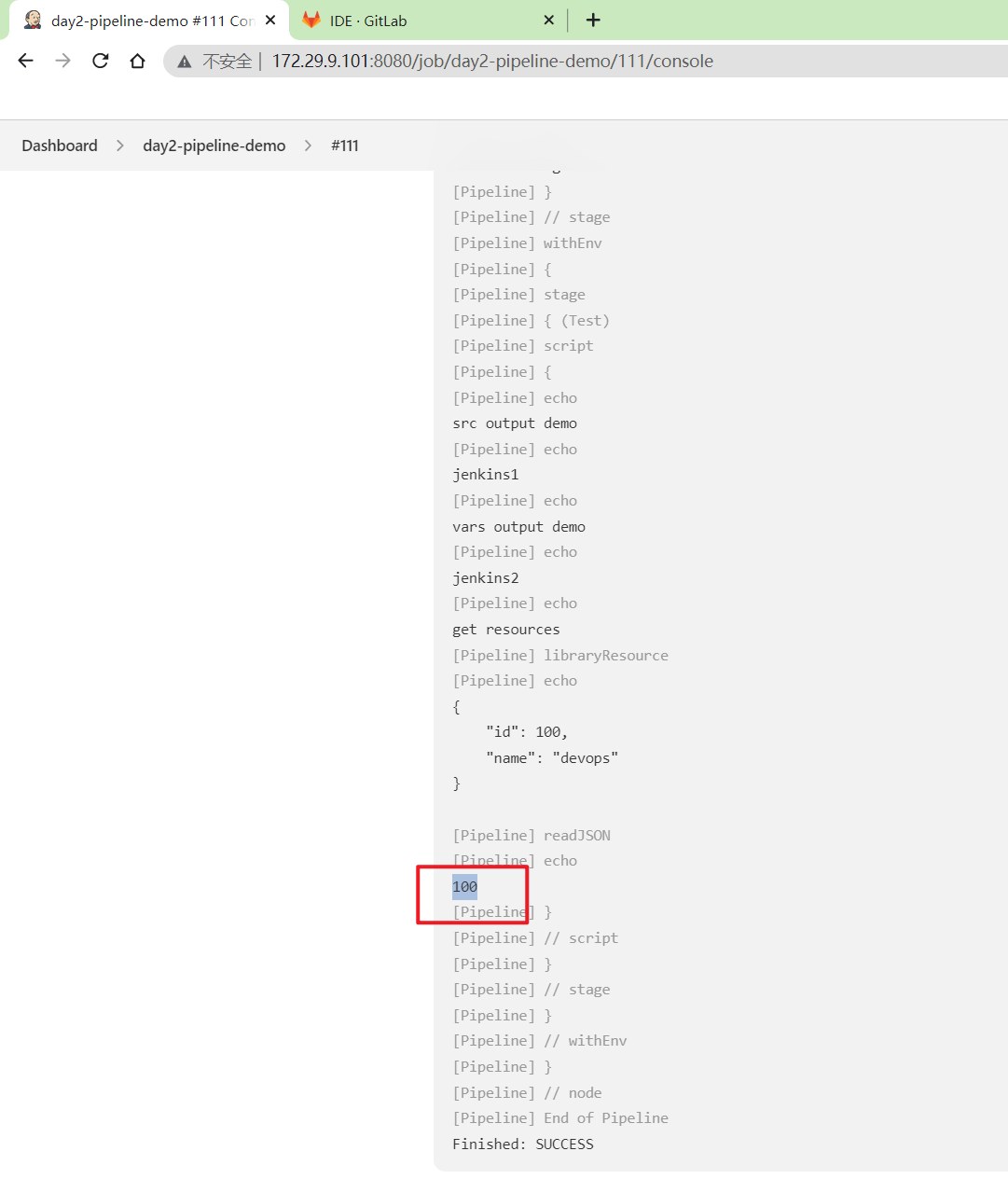
4、代码汇总
Jenkinsfile

groovy
@Library("mylib") _ defcommon =neworg.devops.Common()users =[["id":1,"name":"jenkins1"],["id":2,"name":"jenkins2"],["id":3,"name":"jenkins3"],]pipeline {agent anystages{stage("Test"){steps{script{echo "src output demo"name =common.GetUserNameByID(users,1)print(name)echo "vars output demo"name =GetUserName(users,2)print(name)echo "get resources"data =libraryResource 'config/config.json'println(data)data_json =readJSON text:dataprintln(data_json["id"])}}}}}Common.groovy
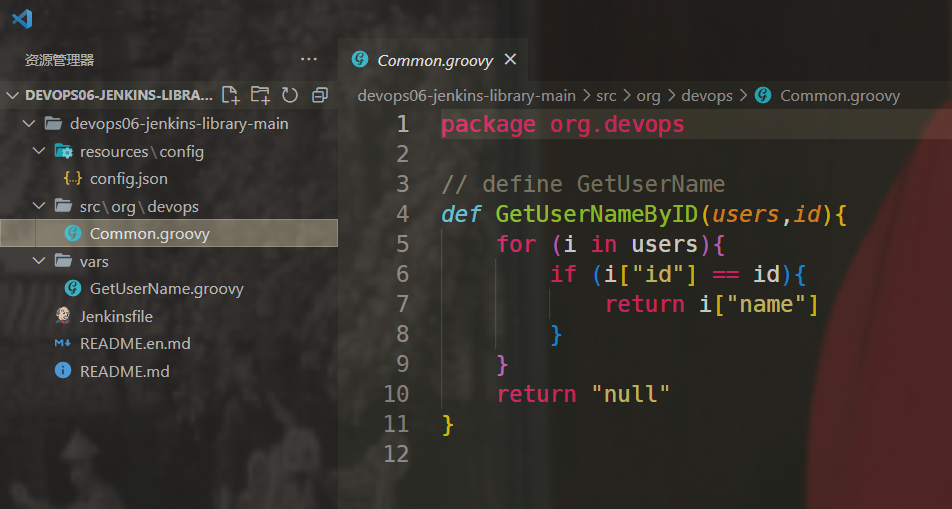
groovy
packageorg.devopsdefGetUserNameByID(users,id){for(i inusers){if(i["id"] ==id){returni["name"]}}return"null"}GetUserName.groovy
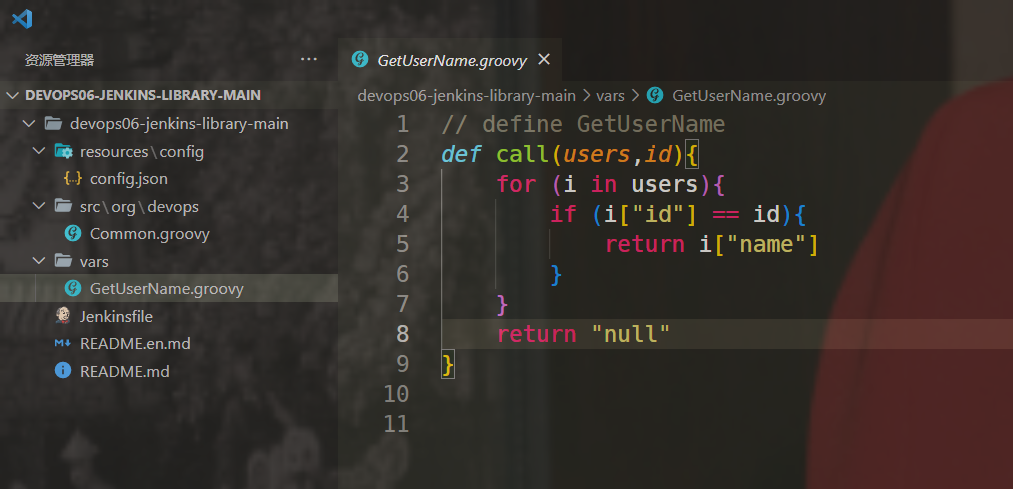
groovy
defcall(users,id){for(i inusers){if(i["id"] ==id){returni["name"]}}return"null"}config.json
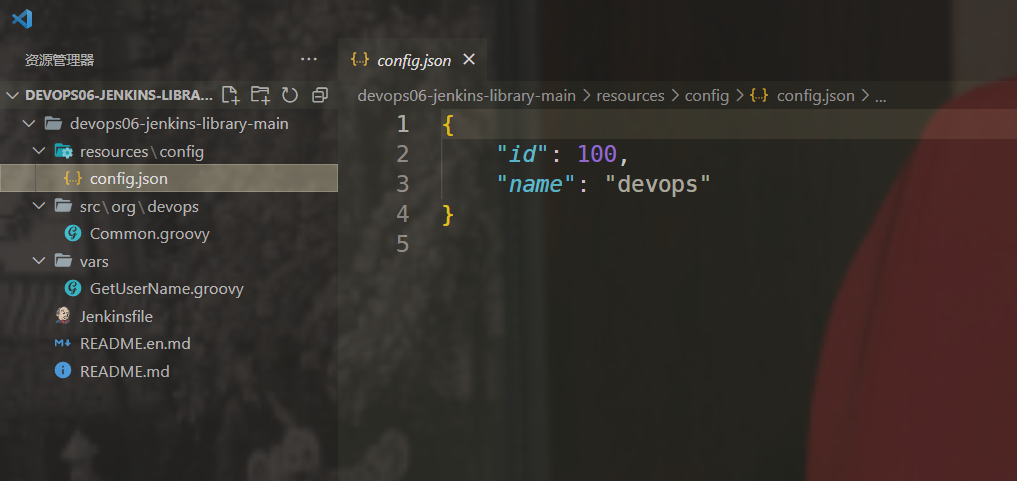
json
{"id":100,"name":"devops"}FAQ
TemplatingEngine实践(扩展)🍊
准备JTE代码
准备Librarys Resource仓库:根目录例如gradle和maven都是单独的library, 目录下steps是我们具体定义的功能函数。
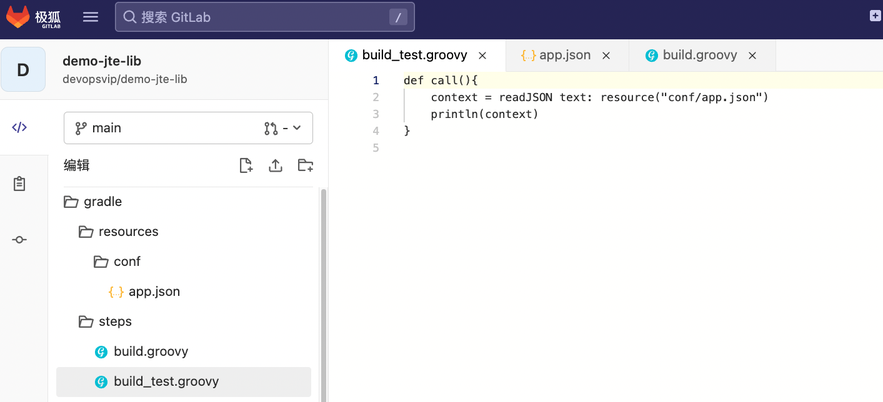
准备配置Pipeline Template和Configuration Files:
pipeline_config.groovy
groovy
libraries{sonarqubegradle}application_environments{dev {short_name ="t"}test}Jenkinsfile
groovy
pipeline {agent {label "master"}stages{stage("build"){steps{build(dev.short_name) build_test()}}}}安装JTE插件
安装Templating Engine插件

进入系统配置,配置插件:
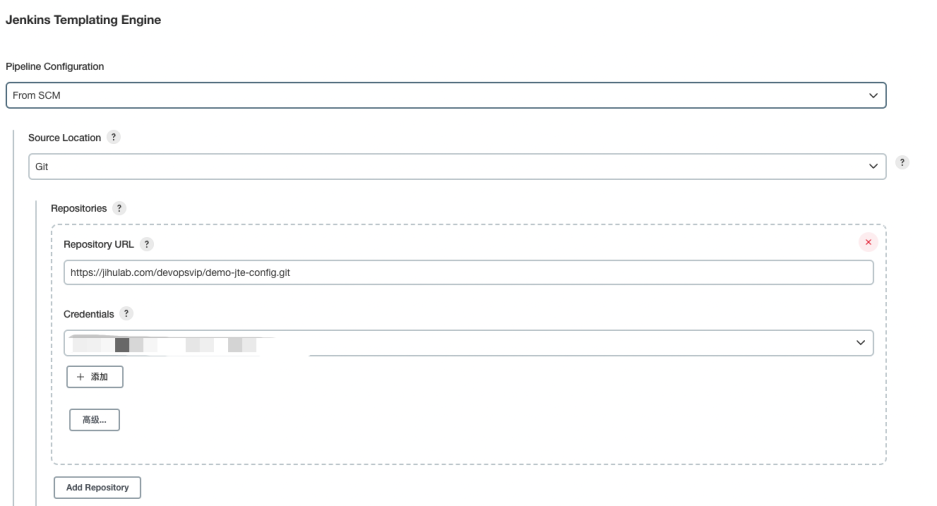
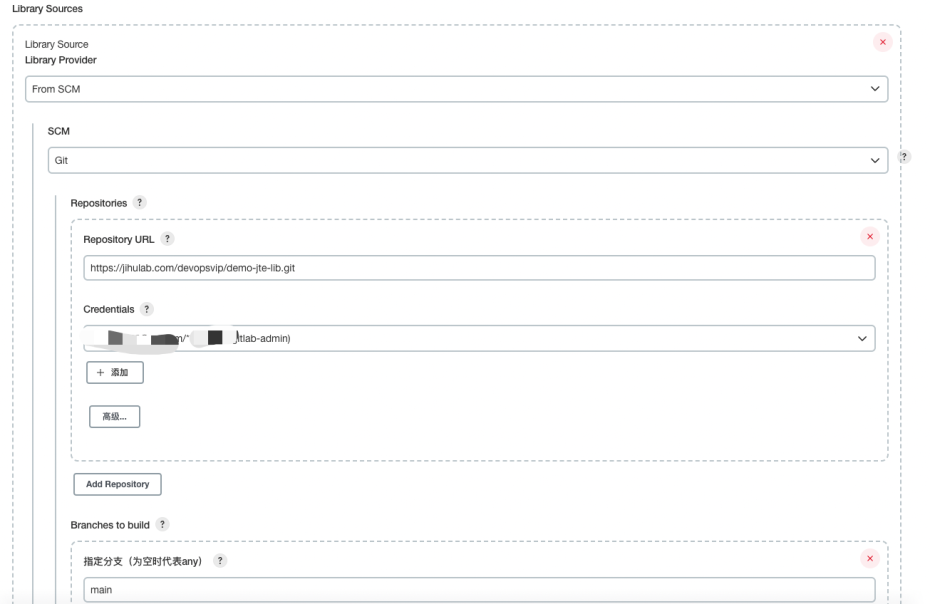
Pipeline测试
创建一条Pipeline
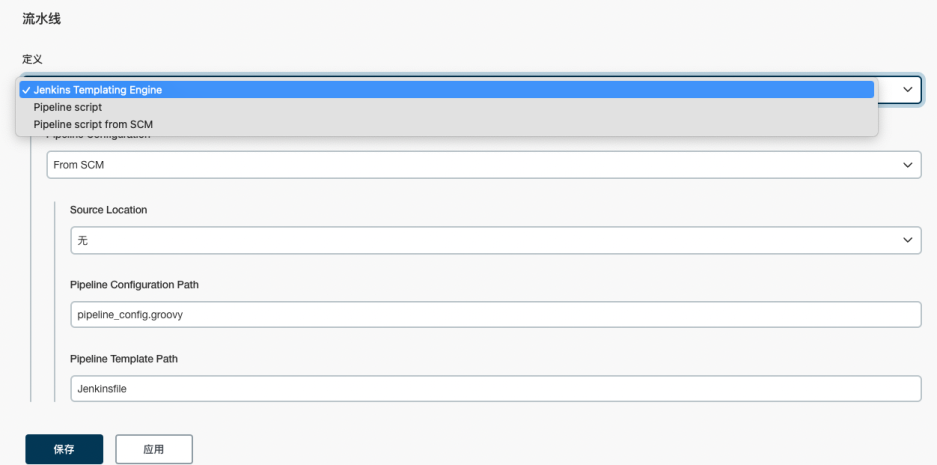
ConsoleOutput
bash
Startedbyuserunknownoranonymous[JTE] Obtained Pipeline Configuration File (show)[JTE] Pipeline Configuration Modifications (show)[JTE] Obtained Template (show)[JTE] Loading Library sonarqube (show)[JTE] Loading Library gradle (show)[JTE] Template Primitives are overwriting Jenkins steps with the following names:(show)[Pipeline] Start of Pipeline[Pipeline] nodeRunningonJenkinsin/var/jenkins_home/workspace/demo-jte-pipeline[Pipeline] {[Pipeline] stage[Pipeline] {(build)[JTE][Step - gradle/build.call(String)][Pipeline] echogradlebuild[Pipeline] echot[JTE][Step - gradle/build_test.call()][Pipeline] readJSON[Pipeline] echo{"name":"jenkins","id":"devopsvip"}[Pipeline] }[Pipeline]
[Pipeline] }[Pipeline]
[Pipeline] End of PipelineFinished:SUCCESS
